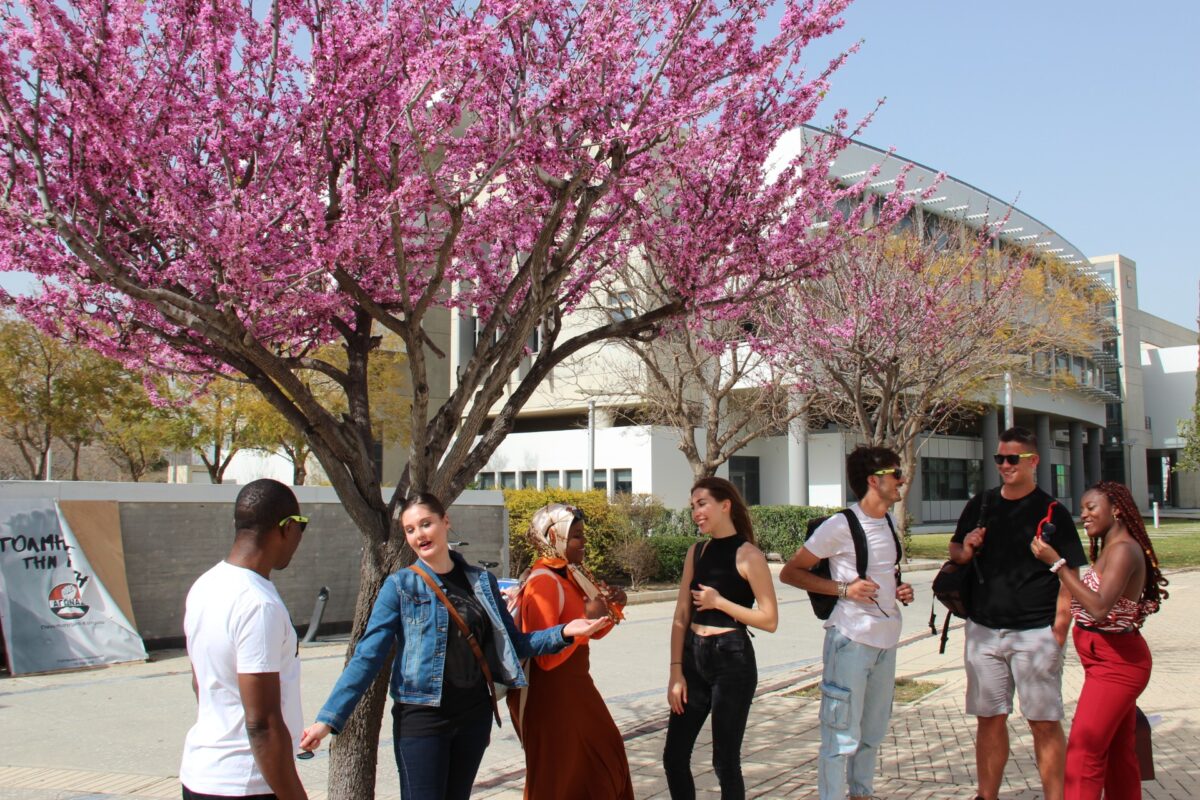By Emma Zeniou, Coordinator of the International Relations and Development Sector, University of Cyprus
Erasmus+: Fostering Internationalisation and Inter-Cultural Competence
The Erasmus+ Programme has been a game-changer especially for students across Europe and certainly for universities like the University of Cyprus.
Erasmus+ is a Pioneering Programme
In 1987, the Erasmus programme began with 3,200 students from different European countries. It aimed to promote mobility, intercultural competence, and the European dimension in education. Today, it remains a flagship cooperation initiative within the EU. The idea behind the Erasmus+ Programme was visionary: “to promote joint study courses between universities and higher education institutions”. There is no doubt that the Erasmus+ Programme has incentivised university students to travel far and wide across the continent and contributed to the EHEA’s current international orientation.
Numbers Speak
Over the past 37 years, Erasmus+ has benefited more than twelve million participants. Nearly 14 million people have participated in the Erasmus+ Programme since its creation. The number of young participants has increased significantly since 1987. Nearly 300,000 a year compared with only 3,244 in 1987.
Financial Support
Erasmus+ invests significantly in student mobility. For the period 2021-2027 the programme’s budget is €26.2 billion, compared with €14.7 billion for 2014-2020, with 70% of the total budget supporting mobility in a lifelong learning perspective. With this increased budget, Erasmus+ becomes more inclusive, more digital, and more green.
Quality of Life and Career Prospects
Recent studies reveal that Erasmus+ enhances students’ quality of life and career prospects.
However, is international mobility always positive?
Universities, governments, employers, and students themselves tend to automatically assume that international mobility has a positive impact.
Exposure to cultural differences during study abroad does not automatically increase intercultural understanding, unless students’ reflective processes are explicitly encouraged by institutions before departure and prior to return from the mobility experience.
Development of students’ intercultural competence may depend, in particular, on their initial levels, on gender (women benefit more), on their integration in international mobility programmes, and on the opportunities, they have to maintain intercultural relations.
The realities of today’s world require universities to focus their efforts on the citizens of the coming decades. They must have the skills to face new challenges: the movement of people between countries, political restructuring, and the socioeconomic order all call for transformations that will require the participation of responsible citizens who are sensitive to cultural differences and knowledgeable about the international sphere.
Considering that participants in mobility programmes present characteristics that are different from their peers in terms of ability, field of study, and socioeconomic background and given that we cannot say with certainty whether the correlations observed to date are in fact causality, it is necessary to continue promoting research linked to international mobility to close existing gaps in knowledge.
Erasmus+ isn’t just about students; it also supports staff development:
The programme facilitates staff mobility for teaching and training. Academics and administrative staff can exchange knowledge, best practices, and innovative teaching methods across institutions.
Staff mobility contributes to professional growth, broadening perspectives, and fostering collaboration. It’s a win-win situation for both the individuals and institutions.
Erasmus+ encourages blended learning and intensive programmes which combine online and on-site Learning: Blended programmes integrate online courses with face-to-face components. This approach allows students to benefit from both virtual and physical interactions.
Erasmus+ supports intensive courses, workshops, and seminars. These short-term programmes focus on specific topics, bringing together students and experts from various backgrounds.
Erasmus+ has transformed the European higher education by promoting mobility, intercultural understanding, and collaboration. Whether its students embarking on life-changing journeys, staff enhancing their skills, or innovative blended programmes, Erasmus+ continues to shape the future of education.
The impact of Erasmus+ extends beyond the classroom—it’s about building bridges, fostering friendships, and creating a more interconnected world.










